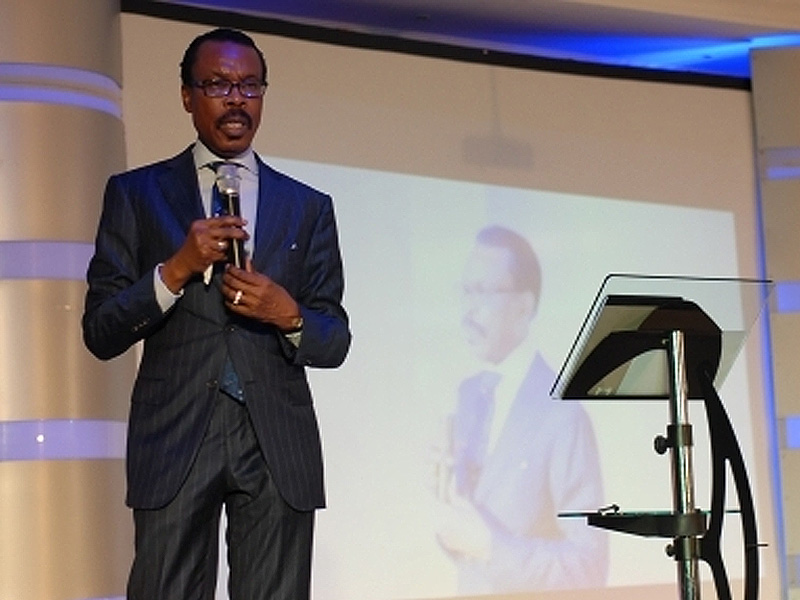- GDP Growth Weak, Dependent on Oil Sector – Economists
Economic experts and analysts on Tuesday welcomed the 0.55 per cent Gross Domestic Product growth rate recorded by the Nigerian economy in the second quarter of this year, which meant that the country had exited recession.
They, however, expressed concern that the economic growth rate was weak and largely dependent on improvement in oil prices and output, and as such, might not be sustainable in the event of a shock in the local or global oil market.
The experts said policymakers still had a lot to do to keep the economy out of recession and experience higher economic growth rate that could guarantee better living conditions and standards.
The economists, who spoke in separate interviews with our correspondent, advised policymakers to take steps that would make the country’s economic growth and recovery to be based on factors that were not dependent on the oil sector.
The Managing Director of Economic Associates, Dr. Ayo Teriba, said, ‘’Even the government has expressed cautious optimism over this recovery. They said that it was the decline in price and output of oil that led into the recession. It is the recovery of oil (price and output) that has taken us out of recession.
“We, therefore, need to create a cushion for the economy such that even if the oil price drops, there will be no recession. We need to look at the example of Saudi Arabia that raised $200bn from privatising 16 sectors. Nigeria should follow suit. We cannot be living in the fear of the drop in oil price. We should open up to investors. Nigeria can attract better investments than Saudi Arabia.”
The Chief Executive Officer, Financial Derivatives Company Limited, Bismarck Rewane, said the GDP growth rate might be sustainable if the country worked harder.
Rewane said, “The growth rate is way below optimal and insufficient to create more work for the 14.2 per cent of Nigerians who want to work but can’t find jobs.
“It is sustainable, but it means that a lot more work needs to be done and it’s too early to start celebrating.”
The Head of Macroeconomic Research at Standard Chartered Bank, Razia Khan, in an emailed comment, said, “While many will focus on the headline move back into positive territory, some of that optimism must necessarily be tempered.
“This is not at all a robust GDP print. It still falls far short of the growth rates the Nigerian economy should be achieving”
The Managing Director, Cowry Assets Management Limited, Mr. Johnson Chukwu, while giving an analysis of the GDP figures, said the economy was still largely dependent on the oil sector.
For the country to experience economic stability, he stated that there was a need to adjust the structure of the economy, adding that the government must make efforts to stimulate growth in key non-oil sectors.
According to him, the government can do this by reviewing the manner it is funding infrastructure growth such that the private sector is not crowded out of the debt market.
He emphasised the need for the government to reduce its borrowing through short-term instruments such as Treasury Bills.
Chukwu said, “The government must improve on the cost and availability of funds for the private sector, especially sectors like the manufacturing. The government must strengthen the financial services sector by incentivising banks to lend to the private sector.
“There is also a need to ensure stability in the Niger Delta so that oil production will not be affected since the economy is still largely dependent on oil. The policymakers need to continue to improve the policy environment by ensuring that initiatives like that of the Investors and Exporters’ FX windows are launched.”
The Managing Director, Afrinvest Securities, Mr. Ayodeji Ebo, said to sustain the recovery, the government must enhance the implementation of the Economic Recovery and Growth Plan, and the 2017 budget.
He also emphasised the need to converge the foreign exchange rates at the Nigeria Interbank Foreign Exchange Market and the National Autonomous Foreign Exchange Market, adding that this would attract more investors into the country.

 Forex3 weeks ago
Forex3 weeks ago
 Naira3 weeks ago
Naira3 weeks ago
 Billionaire Watch2 weeks ago
Billionaire Watch2 weeks ago


 Naira3 weeks ago
Naira3 weeks ago




 Naira2 weeks ago
Naira2 weeks ago




 Naira1 week ago
Naira1 week ago




 Naira4 weeks ago
Naira4 weeks ago
 Banking Sector4 weeks ago
Banking Sector4 weeks ago
























